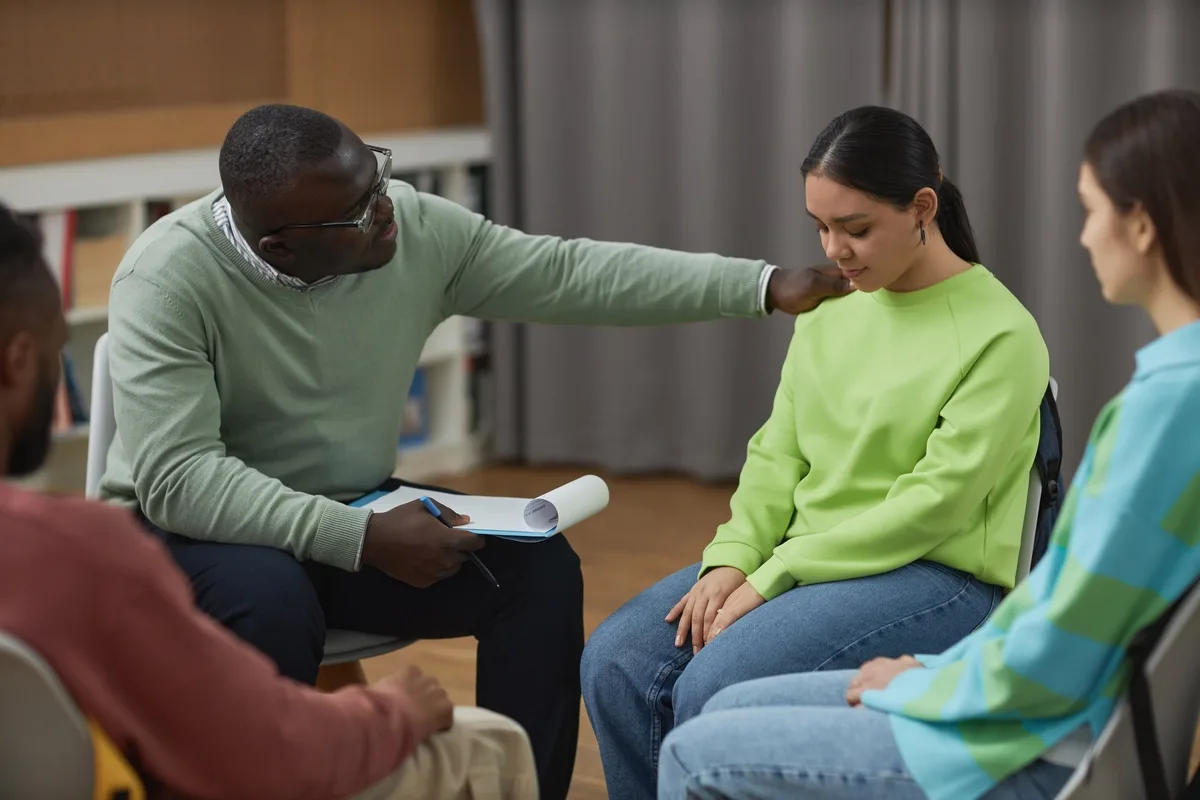24/7 Helpline:
(866) 899-221924/7 Helpline:
(866) 899-2219
Learn more about PTSD Treatment centers in Howard County
PTSD Treatment in Other Counties

Other Insurance Options

Meritain

Ambetter

EmblemHealth

Ceridian

Highmark

Regence

Access to Recovery (ATR) Voucher

Kaiser Permanente

BlueCross

Providence

UMR

Sliding scale payment assistance

Amerigroup

Coventry Health Care

Sutter

CareSource

Self-pay options

MHNNet Behavioral Health

UnitedHealth Group

United Health Care

The Gilead House
The Gilead House is a Non-Profit rehab center located in Indianapolis, IN. The Gilead House speciali...

Four County Counseling Center
4C Health Solutions is a dual diagnosis behavioral health treatment center located in Kokomo, IN. Wi...

First City Recovery Center
Freedom is within reach at First City Recovery Center. Based out of Kokomo, Indiana, FCRC offers a f...

Community Howard Behavioral Health Services
Community Howard Behavioral Health Services offers the complete realm of behavioral care to treat th...






























AA – Alcoholics Anonymous
AA – Alcoholics Anonymous is a private rehab located in Kokomo, Indiana. AA – Alcoholics Anonymous s...















